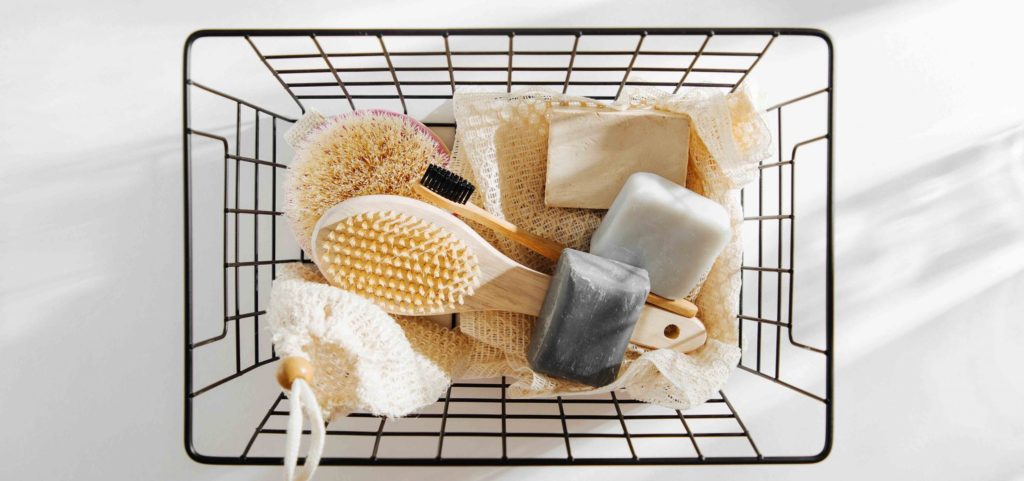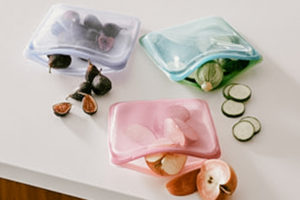We all need to cut down on what we consume and ultimately strive to become zero waste. It’s not just a fad or an attitude anymore but a fundamental reality. Unless we all do something to reduce the materials we consume and the waste we produce then we will face a very challenging future. That’s the big picture and one we have to take seriously. But we also can’t be overawed by the required changes. Nor is it realistic for most people to completely overhaul the way they live overnight. The zero-waste journey is about revolutionizing our lifestyles, even if that is one step at a time.
With that in mind, we have compiled this list of 10 of the best zero-waste products that can help you to start, or hopefully, carry on your journey to becoming zero waste. If you have not made these changes yet, then this is a great way to see how zero waste can work in practice.
Bamboo Toilet Paper
About 27,000 trees are cut down every day just to make toilet paper. That’s roughly equivalent to one in every seven trees felled being flushed straight down the toilet. However, bamboo is an incredibly fast-growing alternative, growing as much as three feet in every 24-hour period. Bamboo toilet paper also uses less water to produce than regular toilet paper.
We’re assuming that everybody has a couple reusable grocery bags lying around and uses them at least occasionally. But what about the little plastic bags for fruit and vegetables or other loose items in the supermarket? You can get non-plastic reusable produce bags that are perfect for picking up some loose tomatoes or carrots and can be easily washed, stored, and reused when required.
Non-Harmful Cleaning Products
Cleaning products that contain harsh chemicals such as bleach or ammonia may have specific uses in sterile environments such as hospitals or food production but there is no real need to use them in the home. Try and use cleaning products that use natural ingredients. Better yet, you can make your own using easily available and cheap products such as vinegar or lemons. The best zero-waste cleaning products are just as effective as nasty, shop bought products.
It’s also worth trying to avoid single use cleaning products such as wipes or disposable mop heads. Use cloths or fabrics that can be washed and reused. And, as always, try and reduce how much packaging you consume by using reusable spray bottles. Making your own products should help with this.
Low-Waste Beauty Products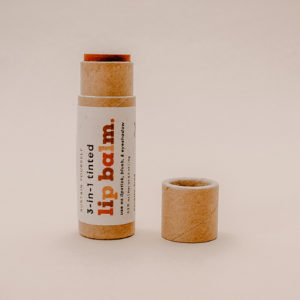
The good news is that more and more brands are making the move towards zero-waste beauty products. But there are a few golden rules you should attempt to follow. Try and avoid products that use microplastics, such as some facial cleansers. As usual, plastic packaging should be avoided, and solid products are generally better than liquid ones. It is also possible to make lots of beauty products, such as toothpaste, deodorant, body scrubs, and more at home.
Trying not to buy single use products such as cleansing pads and cotton swabs is also a good way to cut back on waste. You can find our list of 10 of the best zero-waste beauty products here.
Indoor Compost Bins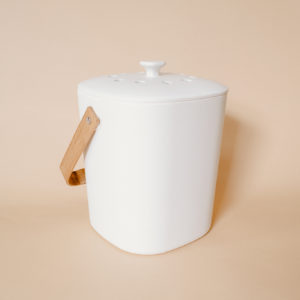
Food waste is a major problem facing us today. In the US, food waste is estimated at between 30-40 percent of the overall food supply. That means about a third of all the food that is produced ends up not being eaten, and this is despite spiraling food costs and landfill sites overflowing. Of course, not everything is always going to get used up but it is essential we try and do all we can to reduce the amount of food that ends up as municipal waste. A great way to do this is with a compost bin. We know not everyone has a garden or yard to keep a compost bin but there are plenty of indoor options that can help you to turn your food waste into usable compost. Here is a list of our top ten recommended compost kits – truly some of the best products for zero-waste kitchens.
Washing-Up Sponges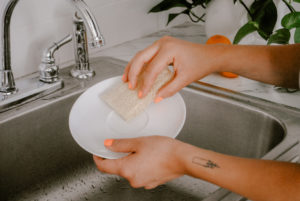
It’s easy to go through washing up sponges quickly, especially if you don’t have a dishwasher. Leave them in the sink and they soon start to take on a sorry and rather unpleasant air. But these days most kitchen sponges are made from plastics, and simply end up in landfill. An investment in some good quality, reusable sponges that can be washed will cut down on the amount of plastic sponge you throw away. Another of the best zero-waste kitchen products.
Menstrual Products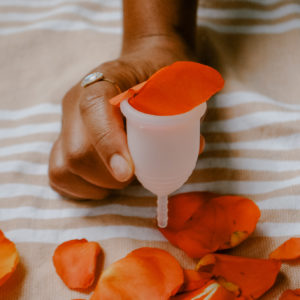
Tampons and sanitary towels are not recyclable and currently constitute 13% of residual household waste. It is also the case that menstrual products thrown in the toilet contribute microplastic particles and other chemical substances that can’t be removed by water treatment plants. That means that they can permanently pollute soils and rivers, with the plastic contained by these products taking up to 500 years to biodegrade. The best menstrual products for a zero-waste life are reusable and include cups, washable pads, and underwear. They typically have a lifespan of between 5 to 10 years and are made from natural fibers such as hemp, cotton, and silk.
Hair Care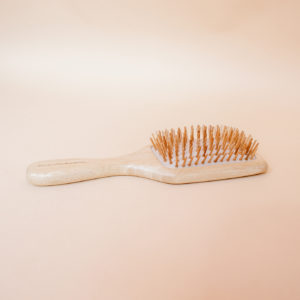
Just like cleaning products, the best zero-waste hair products are those you can make yourself at home. This way you can cut out the harmful or unsustainable chemicals that go into any hair products, and hugely reduce the amount of plastic and other packaging required. However, if rubbing homemade concoctions of olive oil and honey into your hair is not for you, there are also plenty of low waste hair care products on the market.
Baby Wipes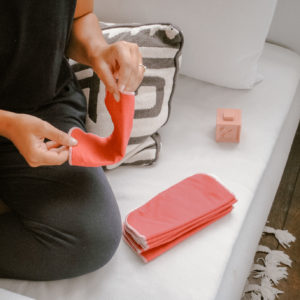
As any parent knows, there’s no denying how useful baby or wet wipes can be. From changing diapers to cleaning up after mealtimes, having a pack of wet wipes to hand is almost essential. However, an estimated 90% of wet wipes on the market contain plastics and are not biodegradable, often resulting in blocked sewage pipes or washing up on beaches around the world. Switch to a non-plastic wipe or use reusable cloths and you can significantly cut down on your baby’s impact on the planet.
Clothing
Fast fashion has changed the way the world shops over the last two decades but at significant cost. The clothing industry now consumes more energy than the aviation industry and shipping industry combined, accounting for 10% of global emissions. So, buy quality rather than quantity. Make do and mend. Or buy vintage clothes. That way you can really cut down on your clothing waste.
ShoesThe production of shoes has a massive impact on the environment. All those synthetic materials, chemicals, and energy consumption add up to pollution and waste. By using renewable and sustainable materials like sheep’s wool, we can reduce this impact significantly. It’s a fantastic alternative to synthetic materials because it’s biodegradable, recyclable, and renewable. It’s an eco-friendly choice that can make a big difference. Plus, producing wool requires less energy and creates fewer greenhouse gases than synthetic materials, so it’s a win-win situation.
For more information about how to live a zero-waste life, including more top tips about zero-waste products and swaps, check out our blog or visit our best shop for zero-waste products.

